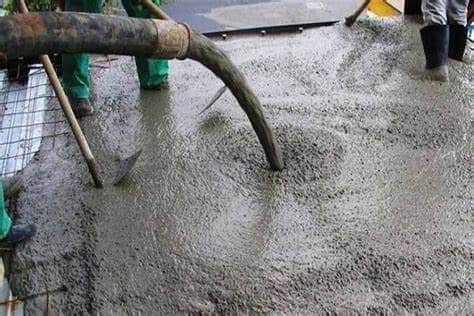What Are The Factors That Affect Concrete Strength In Poway Ca?

- The ratio of the amount of water to the amount of cement in a concrete mix is perhaps the most critical determinant of concrete strength. A lower water-cement ratio leads to stronger concrete. Too much water makes the mix easier to work with initially, but it will lead to a porous concrete that is not as strong.
- Aggregates constitute a significant volume of concrete. The properties of the aggregate, such as its size, shape, and texture, can impact the strength of the final concrete mix. Higher quality aggregates — clean, hard, and free of absorbed chemicals or coatings — generally create stronger concrete.
- Curing is the process of maintaining the moisture and temperature conditions of concrete for hydration reaction. Properly cured concrete will be significantly stronger than concrete that is inadequately cured.
- The specific mix of ingredients in the concrete can have a significant effect on the concrete strength. In general, mixes with higher cement content will result in stronger concrete.
- Tiny air bubbles are often intentionally included in the concrete mix to improve its durability and workability. However, a high percentage of these entrained air bubbles can lower the concrete’s strength.
- The temperature at which concrete cures can greatly affect its strength. If the temperature is too high or too low, it can lead to a weaker product.
- Compaction eliminates air bubbles and thoroughly mixes the cement, aggregate, and water. Under-compaction can result in lower concrete strength, while over-compaction can cause segregation, affecting the overall strength.
FAQs
How Does The Type Of Cement Influence The Concrete Strength?
The type of cement used in a concrete mix can greatly affect its strength. For example, Portland cement comes in several types with varying compositions and properties that provide different levels of strength and setting times.
How Does Age Affect The Strength Of Concrete?
As concrete ages, it continues to harden and gain strength through a process called hydration. The rate at which concrete gains strength slows down over time, but in general, older concrete is stronger.
What Is The Ideal Curing Time For Maximum Concrete Strength?
Though the exact time may vary based on mix and conditions, curing should typically continue for at least 7 days after the concrete has been placed. However, extended curing times up to 28 days can lead to even greater strength.
Conclusion
Understanding the factors that influence concrete strength is critical in both the design and construction processes. The water-cement ratio, quality of aggregate, curing process, mix ingredients, air entrainment, temperature during hydration, and the compaction process play crucial roles in determining the final strength of concrete. For more information, contact Concrete Contractor Poway Ca at (858) 683-6565.